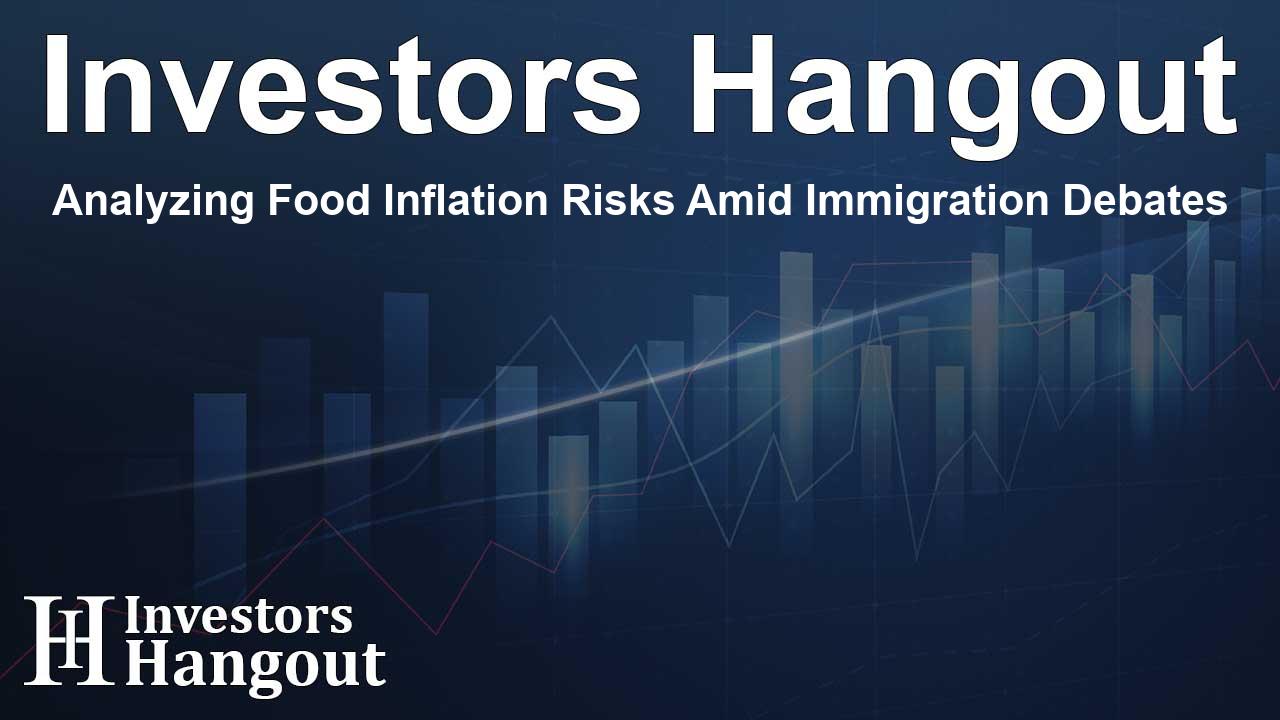Analyzing Food Inflation Risks Amid Immigration Debates

Concerns About Food Inflation and Immigration Policies
Betsey Stevenson, a former chief economist from a previous administration, has raised alarms regarding the possible rise in food inflation if undocumented immigrant farm workers face deportation. Her observations are pivotal as they emerge in a heated national debate on immigration and agriculture.
Economic Insights from Stevenson
Stevenson, now an academic economist at her university, remarked, “We wouldn’t run out of food, but food inflation will increase.” This statement underlines the critical reliance on a workforce that drives food production in the country, predominantly consisting of undocumented workers. This relationship has profound implications for food pricing and nutritional accessibility, especially in light of changing immigration policies.
Impact of deportation on agricultural labor
The stark reality is that nearly forty percent of American farm labor is composed of undocumented immigrants. If policies shift towards mass deportations, the agricultural sector may face crippling labor shortages, leading to increased costs for production. This would ultimately trickle down to consumers in the form of higher prices at grocery stores, impacting families nationwide.
Political Climate and its Economic Consequences
During a recent campaign rally, a prominent political figure outlined plans for large-scale deportation, linking gang activity to immigration and calling for urgency in handling border-crossing issues. This sentiment echoes through the discourse on immigration reform, where economic implications are often overshadowed by political rhetoric.
Critique of misinformation in policy discussions
Stevenson has stressed the necessity of grounding policy discussions in factual information and robust economic principles. She previously criticized misleading narratives about tariffs that contribute to consumer price inflation, which illustrates the??? of informed dialogue in shaping sound economic policy.
The Role of Tariffs and Economic Predictions
Amidst discussions on immigration, there are broader concerns regarding tariffs and their effect on inflation rates. Economic analysts suggest that impending tariff measures might further amplify inflationary trends, compounding the challenges posed by labor shortages in the agricultural sector.
Future outlook on the economy
With ongoing economic fluctuations, recent analyses predict a possibility of interest rate cuts by financial authorities in response to disappointing payroll figures. This indicates a potentially changing monetary landscape that could influence employment and wage stability, ultimately affecting consumer spending patterns.
Conclusion: A Call for Thoughtful Economic Strategy
As discussions unfold about the future of immigration policy, it is crucial to consider the economic implications, particularly regarding food inflation and labor supply. The ongoing dialogue highlights the need for thoughtful strategies that balance economic realities with the diverse perspectives surrounding immigration.
Frequently Asked Questions
What is the main concern regarding immigration and food prices?
The main concern is that deporting undocumented immigrant farm workers could lead to labor shortages in agriculture, resulting in increased food prices.
Who is Betsey Stevenson and what is her stance?
Betsey Stevenson is a former chief economist who warns that while food won't run out, food inflation will likely rise due to immigration policy changes.
Why is undocumented labor important for the agriculture sector?
Undocumented immigrants make up a significant portion of the agricultural workforce, and their removal would significantly disrupt food production and increase costs.
How does misinformation affect economic policy discussions?
Misinformation can lead to poor policy decisions, as it may distort public understanding of issues like tariffs and labor economics, ultimately impacting consumer prices.
What are potential future implications for the economy?
The economy may face challenges such as increased inflation rates and labor shortages in key sectors, demanding careful monitoring and strategic policy responses.
About The Author
Contact Logan Wright privately here. Or send an email with ATTN: Logan Wright as the subject to contact@investorshangout.com.
About Investors Hangout
Investors Hangout is a leading online stock forum for financial discussion and learning, offering a wide range of free tools and resources. It draws in traders of all levels, who exchange market knowledge, investigate trading tactics, and keep an eye on industry developments in real time. Featuring financial articles, stock message boards, quotes, charts, company profiles, and live news updates. Through cooperative learning and a wealth of informational resources, it helps users from novices creating their first portfolios to experts honing their techniques. Join Investors Hangout today: https://investorshangout.com/
The content of this article is based on factual, publicly available information and does not represent legal, financial, or investment advice. Investors Hangout does not offer financial advice, and the author is not a licensed financial advisor. Consult a qualified advisor before making any financial or investment decisions based on this article. This article should not be considered advice to purchase, sell, or hold any securities or other investments. If any of the material provided here is inaccurate, please contact us for corrections.
